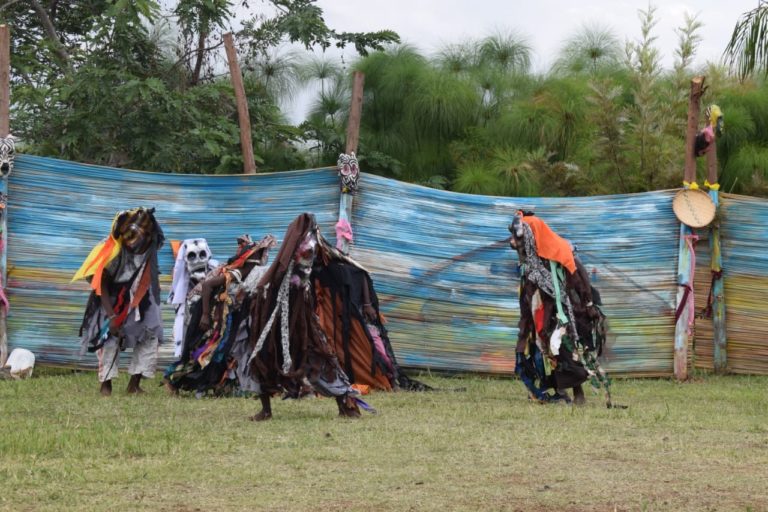
Africa’s Lake Victoria, the second-largest freshwater lake in the world after North America’s Lake Superior, is in danger.
Rapid industrialization in the three countries that border the lake, Kenya, Tanzania, and Uganda, as well as the deforestation and wetland destruction that come with it, have degraded the waters, leaving sprawling dead zones.
Overfishing threatens the livelihoods of the 3 million people who depend on fish from the lake, the largest inland fishery in the world.
One sign of hope: Young staff from Lake Victoria Waterkeepers in Kenya and Uganda, who are determined to recruit a new generation of water protectors. We spoke with some of them at the International Summit in Nairobi in November. The quotes below have been edited and condensed.
Like all African Waterkeepers, they do their work in the face of true peril. As Zainab Nisha Namutebi, the Kazinga Channel Waterkeeper, says, “What scares me the most is that the polluters have the power and authority. Fighting such people is putting your life at risk — they can silence you whenever they want. Local officials are scared to help too. … Whatever happens, I am confident I am moving in the right direction, and proud to be part of this work.”
Francis Odhiambo Omungo
Kenya Lake Victoria Waterkeeper
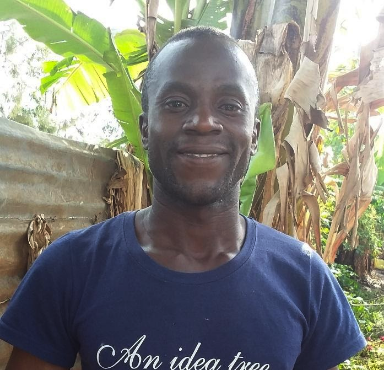 I conduct plays as outreach. (See feature image above) It’s called magnet theater; we’ll get the community together, then perform immediately, with the community as participants. We can do 40 days of performance a year for students.
I conduct plays as outreach. (See feature image above) It’s called magnet theater; we’ll get the community together, then perform immediately, with the community as participants. We can do 40 days of performance a year for students.
At a primary school, we use masks, dance, and visual art. The mask might be The Destroyer of the Environment; the visual art will show how to heal the world. At the college level, it might be a 45-minute play about climate change and how we can tackle those problems.
There’s wetland in Lake Victoria that has no water or animals anymore; local leaders can arrest polluters so they change their behavior. We’ll stop the play midway and have a discussion, asking what the audience has seen.
We give them methods they can use to preserve the environment and educational materials like posters, magazines and CDs. People who see the plays become stewards.
Brandon Ronaldo Higenyi
Uganda Lake Victoria Waterkeeper
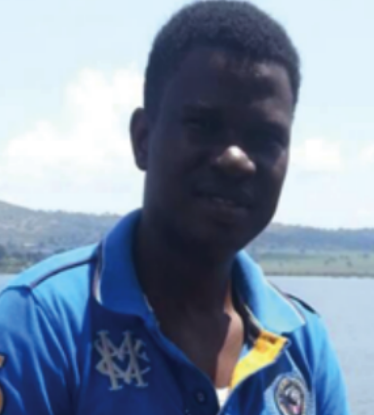 I’m a former schoolteacher; I was looking for something that would help the whole nation.
I’m a former schoolteacher; I was looking for something that would help the whole nation.
The level of Lake Victoria water pollution we see is staggering. We’re seeing oil in the fish in Lake Jinja.
This will be slow. I’m the tortoise. Maybe in five years, we’ll get a good government that will support the objectives of the Waterkeepers. We’re hopeful. If you’re hopeful and have a vision, you can get there.
Our biggest challenge is the government: Government ministers own the factories, so government ministers aren’t going to police the factories. That also means there’s no one to protect us. That’s why I write things down; in case I’m gone, the next person will know where to start.
Daniel Musota
Uganda Lake Victoria Waterkeeper
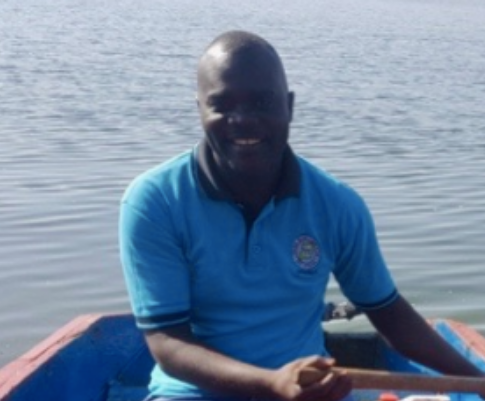 Godfrey Kitimbo and I founded Lake Kyoga Waterkeeper three years back. Lake Kyoga is connected to the River Nile, which draws water from Lake Victoria; if you’re protecting Lake Kyoga and you’re not protecting the source, then it’s like you’re not doing anything.
Godfrey Kitimbo and I founded Lake Kyoga Waterkeeper three years back. Lake Kyoga is connected to the River Nile, which draws water from Lake Victoria; if you’re protecting Lake Kyoga and you’re not protecting the source, then it’s like you’re not doing anything.
Areas around Lake Victoria are becoming increasingly industrialized, especially in three cities: Kampala, Jinja, and Entebbe, with fisheries, breweries, and processing industries. These industries are owned by foreigners from Asia. Recently, an industry in Jinja released raw chemicals into the lake. All of the fish near that area got contaminated with oil.
I grew up in Jinja, swimming in the water and eating the fish. I’m thinking of collaborating with other nations’ Lake Victoria Waterkeepers on fundraising, research, and events. We all want the same thing: Clean water, safe fish, healthy people.
Roniance Adhiambo
Kenya Lake Victoria Waterkeeper
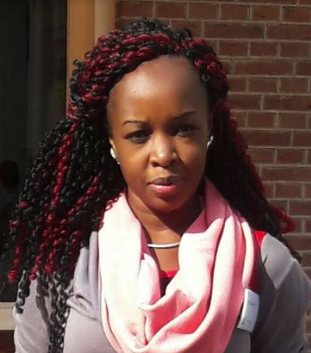 We work with local communities who are affected by the fact that these resources have been degraded over time. Despite this, they don’t really look at conserving and preserving these wetlands as their jobs — they see it as the government’s job or an NGO’s job.
We work with local communities who are affected by the fact that these resources have been degraded over time. Despite this, they don’t really look at conserving and preserving these wetlands as their jobs — they see it as the government’s job or an NGO’s job.
It’s really inspiring to see someone who was completely ignorant and carefree about their impacts on the lake, such as polluting it or cutting down wetland vegetation, become more informed and appreciative and finally take up the task of protecting and conserving it. That keeps me going.
Maurice Ogoma
Kenya Lake Victoria Waterkeeper
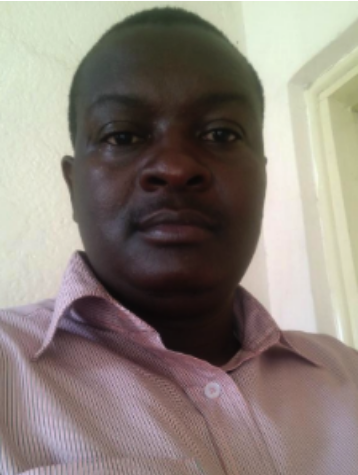 We’ve created a tool to assess the vulnerabilities of local communities to climate change to come up with community-level action plans, bringing community members together to find ways to respond to the vulnerabilities.
We’ve created a tool to assess the vulnerabilities of local communities to climate change to come up with community-level action plans, bringing community members together to find ways to respond to the vulnerabilities.